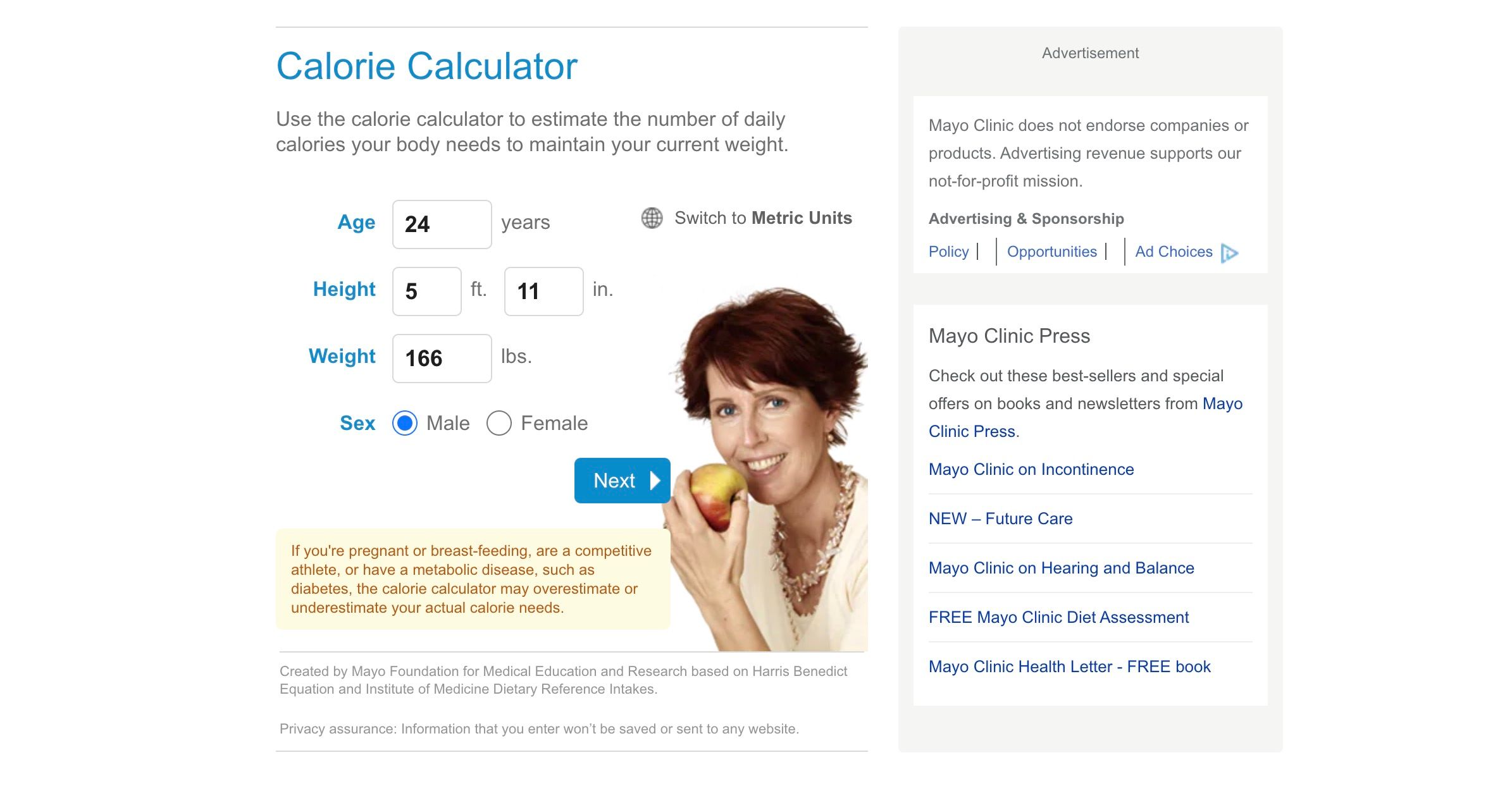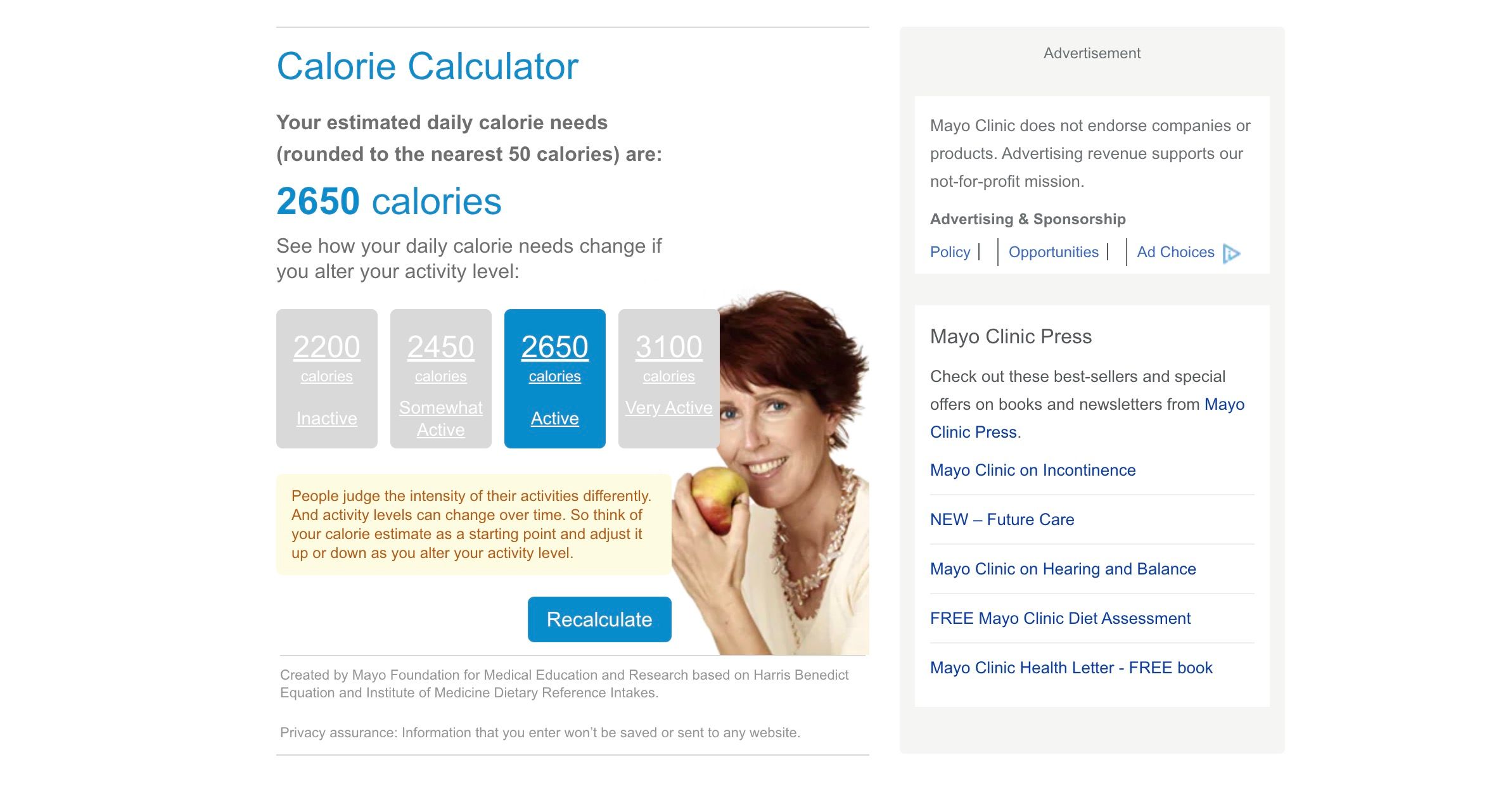Starting your fitness journey can be overwhelming — you need to make time to exercise, choose your workouts, and eat in a way that correlates to your fitness goals. Depending on your goals, you would aim for a calorie surplus or deficit. There’s also the option to maintain your current calorie intake.
If you’ve reached the point in your fitness journey where you need to track calories, you’re probably familiar with online calorie calculators. They may be critical to achieving your fitness goals, but are they accurate? Let’s find out!
Online calorie calculators and how they work
Online calorie calculators estimate how many calories you need to eat each day to maintain your current weight. These tools require you to enter information about yourself: your age, height, weight, gender, and activity level.
They use it to decipher how many calories you burn each day, which, at a fundamental level, is the same as how much you can eat to avoid weight gain or loss. For example, the Mayo Clinic’s calorie calculator first requires you to enter your age, height, weight, and gender.
Next, you have to choose your activity level from the following options: inactive, partially active, active and active. Next, you just need to click calculate and get an estimate of how many calories you need for maintenance.
Basal metabolic rate and total daily energy expenditure
Your basal metabolic rate (BMR) represents how many calories your body needs to perform essential activities at rest. Examples of such activities are muscle repair and digestion. Calorie calculators use height, weight and other parameters to estimate your basal metabolic rate (BMR).
Metabolism is the body’s highest means of energy expenditure, not exercise. Hence, your BMR is the most important metric used by calorie calculators. However, exercise helps a lot, as it not only burns extra calories but also boosts your metabolism. This is where total daily energy expenditure (TDEE) comes into play.
TDEE represents all the energy you burn in a day. Calorie calculators estimate this number by combining your BMR and activity information. With this awareness, you can eat more or less, depending on whether you want to lose or gain weight.
Can you trust online calorie calculators?
Calorie calculators are great online fitness resources for reaching your fitness goals. They’re especially helpful for beginners looking to limit or increase calories for the first time and have no idea how to do it. However, they have their limitations.
First, online calorie calculators aren’t personalized. Some factors that influence calorie expenditure, such as genetics, can be quite specific from person to person, so a one-size-fits-all approach is not appropriate.
Also, calorie calculators don’t take into account body composition. Muscle tissue burns far more calories than fat. So, as the Mayo Clinic reports, a heavily muscled person with the same weight as a person with more fat would have a higher BMR.
Most calorie calculators have activity levels that are too broad to accurately calculate calorie expenditure. “Inactive, somewhat active, active, and very active” doesn’t cut it.
Finally, calorie calculators ignore nutrient intake. Nutrient tracking is just as important as calorie tracking, if not more so. Therefore, it is essential to properly distribute nutrients in calorie consumption, at least the macronutrients: proteins, fats and carbohydrates. Merely tracking calories won’t help you achieve your goals optimally.
So, do all of these demerits mean you shouldn’t use calorie calculators? No. However, you should only use them as a guide. Ultimately, you need to pay attention to your body and watch it respond to what you feed it. Losing or gaining weight involves other measures such as tracking your diet with an app and regularly tracking your progress to make sure you’re on the right track.
Go ahead and Google “Calorie Calculator”
A calorie calculator will give you something to work towards on your journey to lose or gain weight through calorie counting. These calculators may not be perfect, but they’re usually close. So, listen to your body and respond accordingly. As long as you’re getting close to your goals, calories don’t really matter.
#online #calorie #calculators #accurate

